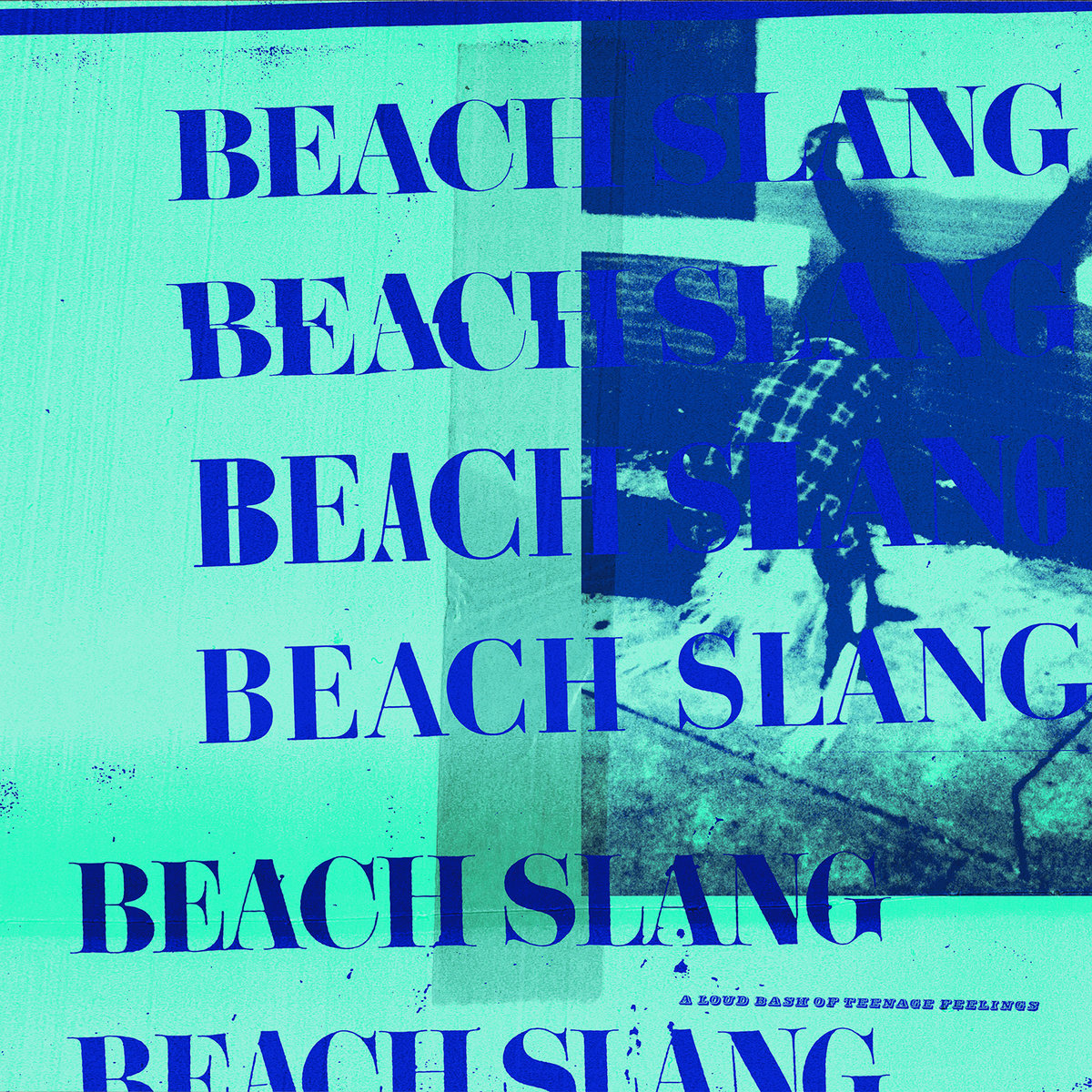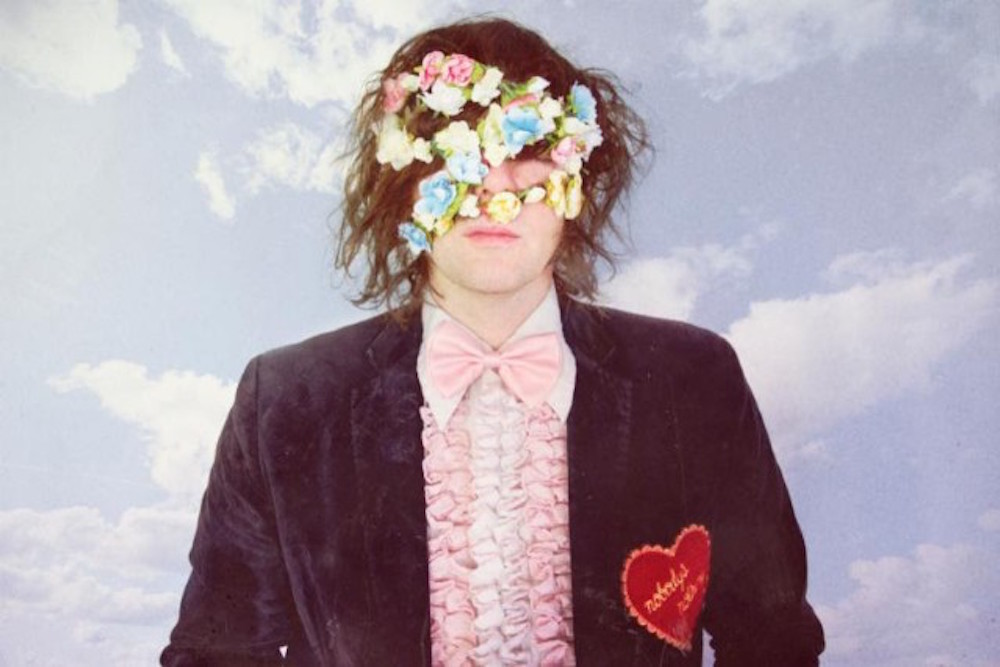Do it for the kids. So goes the mantra espoused by several colleagues of mine, half inside joke, half journalistic mission statement. The aphorism, often shortened to DIFTK, is typically invoked whenever we need a reminder of why we do this job in the first place. As patrons of an echo chamber of Twitter beefs, streaming wars, and the ins and outs of Drake’s romantic life, it can be easy to feel like rock journalism has morphed into an SEO-powered assembly line—but we’ve got to keep the machine running, for the sake of everyone clicking.
Likewise with Beach Slang, a Philadelphia punk trio firmly devoted to the art of the adolescent anthem. It’s taken the band less than three years to attain rabid international adoration—and by rabid, I mean lyrics etched on skin and fans crammed into clubs from Berkeley to Brooklyn, screaming every word like gospel. With their combination of jagged hooks and pointed tales of reckless abandon, it’s hardly surprising that many cite the band as the spiritual descendants of the almighty Replacements. The sonic similarities between the two bands are obvious, but their true connection lays in the idea outlined above: a shared commitment to the sacrifice of the individual for the good of the collective, art largely shaped by audience. This commitment is especially intrinsic to A Loud Bash of Teenage Feelings, the band’s second LP.
https://youtube.com/watch?v=1O1s1JbBKjE
Frontman James Alex cherishes the chance to become a bowtie-wearing vessel for today’s disaffected youth because he’s witnessed the music’s inspirational effect firsthand, chatting with fans at bars and after gigs. Your music changed my life, they say; I’ve never related to anything this much in years. And therein we have the secret to Beach Slang’s appeal, as well as their genius. Alex’s lexicon is defined by its lack of detail, a word bank of wistful teenage touchstones (“kids,” “punks,” “noogies,” “smooches”) that gesture to accounts of late-night debauchery without getting into specifics.
This isn’t done out of lyrical laziness, but with the expectation that each listener will hone in on the imagery with which they identify most, adopting the record into their own personal score, one grounded equally in Bowie’s starry-eyed scuzz and the Ramones’ chaotic minimalism. “Every time I write songs, I just imagine I’m scoring a John Hughes film,” Alex recently told Stereogum, framing the band as a cross-generational tabula rasa—the millennial zeitgeist seen through the eyes of a one-time hardcore kid currently in his forties, happily married with a youngster of his own.
If last year’s debut, The Things We Do to Find People Who Feel Like Us, was Beach Slang’s Sixteen Candles—a furious suite of turbulent alt-rock tailored for Jake Ryan’s senior-dance after-party—then A Loud Bash of Teenage Feelings is their Breakfast Club. Like Hughes’ coming-of-age classic, the trio’s sophomore effort is grounded in archetypes of youthful mischief, with scenes instantly recognizable to anyone who’s snuck into a bar or skipped class to hang by the dumpsters. The tropes encountered over the course of Beach Slang’s turbo-charged, fist-pumping bildungsroman include—but are not limited to—wayward lovers, swapping spit in between puffs of cigarette smoke (“Wasted Daze of Youth”); the self-medicating loner dependent on drugs and music to pull themselves out of depression (“Spin the Dial”); the ne’er-do-wells lurking on street corners (“Young Hearts”) and bouncing off the walls of the local dive in a game of pugnacious ping-pong (“Atom Bomb”).
These familiar fucked-up faces make fine anthemic vehicles, but it’s Alex’s gurgled, defiant aphorisms—and the grandstanding, Springsteenian arrangements that house them—that connote, and accomplish, the band’s self-stated mission of punching the listener right in the heart. On the aptly titled opening track “Future Mixtape for the Art Kids,” the band lurches into angular lockstep, their barreling power chords a prelude to a pep talk for the misfits: “We’re not lost / We are dying in style,” Alex sneeringly insists. “We’re not fucked / We are fucking alive.”
Alex’s ebuillent streak continues through the rest of the album, and while the impassioned optimism fueling lines like “You’re not as broken as you are brave” and “Don’t be afraid to want to be alive” pierce 2016’s ever-present cloud of dread, they’re also pretty damn trite, not to mention over-enunciated (think Patrick Stickles auditioning for a production of Twelfth Night after smoking ten packs of cigarettes). “Hot Tramps” is the album’s weakest link, its hulking, knotted framework undermined by a series of clumsy metaphors seemingly yanked from an Intro to Poetry assignment. (“Your eyelashes shine like a plastic diamond / Your arms are a car crash I want to die in,” “Your mouth mumbles, wild, like a pile of sirens.”)
Certainly, one could argue that such overzealously phrased imagery is the whole point—what else would you expect from a record called A Loud Bash of Teenage Feelings?—but between the eye-roll-worthy teenage taxonomy (“nothing kids,” “fucked-up kids,” and “hard-luck kids”) and the repeated attempts at channeling the rebellious slogans of the past, which have since devolved into stale memes (“All my thrills come cheap, but my aim is true,” “I was born at the bottom, but I never belonged”), it’s hard not to feel a slight secondhand embarrassment, the kind that sets in when your friend’s dad wanders into the party under the pretense of “refilling the snack bowl” and then proceeds to talk your ear off about their days following the ‘Mats.
Alex isn’t the only one who toes that line: consider Billie Joe Armstrong, another nostalgic punk auteur, whose hamfisted attempts at detailing the concerns of “the Class of ’13” through overwrought narrative distracted from 2009’s otherwise strong 21st Century Breakdown. Beach Slang’s latest album lacks that overt theatric streak, and rises above as a result. By grounding their idealism in simple, anthemic rock and a vague mythology, they’ve created an angsty, mutable codex of sorts, an inclusive machine by which to punch all the hearts.





